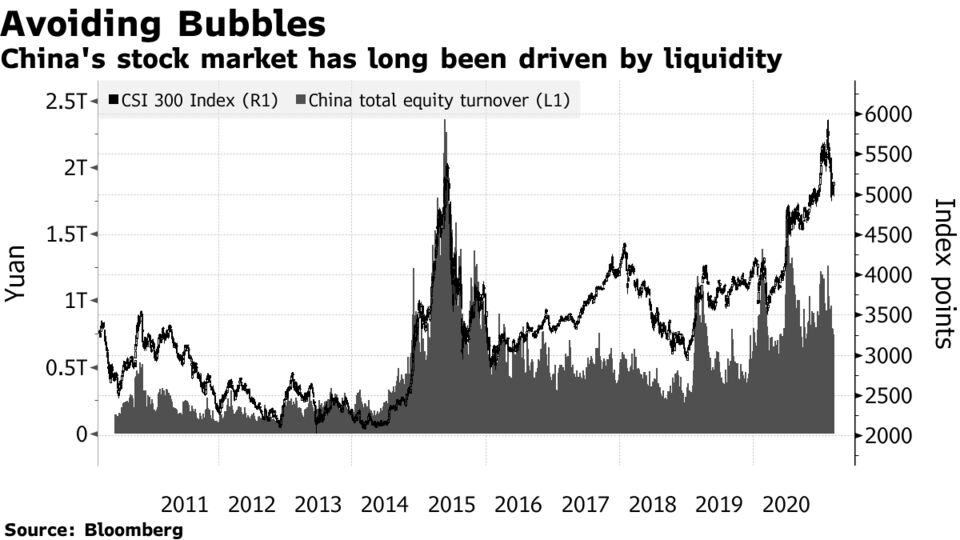LOOK OUT!
China’s Crusade Against Risk Is Tormenting Financial Markets
- Stocks lost $1.3 trillion amid warnings about asset bubbles
- Central bank targets leverage; fintech is also under scrutiny
Divining the targets of Beijing’s latest de-risking campaign is becoming an essential trading strategy.
Those who failed to take heed of warnings about asset bubbles by officials were steamrolled by a $1.3 trillion rout in Chinese equities, with the most popular stocks bearing the brunt of the selloff. That came shortly after Beijing stunned millions of would-be investors by canning Ant Group Co.’s $35 billion listing at the 11th hour, despite evidence that regulators had growing concerns over its business model. In another sign of complacency, Tencent Holdings Ltd. neared $1 trillion in value even as the fintech industry came under attack, only for the stock to then suffer its worst week since 2011.
Quick reversals in asset prices show how the Communist Party remains an outsized influence on China’s financial markets, despite the increasing presence of foreign investors. While regulators are more vocal about their intentions than in the past, Party policy remains opaque to outsiders. What’s clear is Beijing’s determination to tackle risk after last year’s stimulus pushed leverage to almost 280% of economic output.

“China is facing an increasingly complex environment,” said Gen Li, chief executive officer of Beijing BG Capital Management Ltd. “Officials have repeatedly expressed their concern about asset prices deviating from economic fundamentals, and there’s also the risk of financial turmoil abroad.”
This month alone, the nation’s banking watchdog warned about leverage in the industry, a deputy governor of the central bank proposed creating a new “Financial Stability Law,” and Premier Li Keqiang spoke of the “formidable tasks” China faces in reducing risks in the financial system. The securities regulator chief said Saturday that large flows of “hot money” must be strictly controlled.
While the new fronts in the battle against destabilizing elements are disturbing -- and penalizing -- investors, officials have so far succeeded in deflating bubbles without creating panic. The CSI 300 Index of stocks is more than 40% above last year’s March low and has steadied around 5,000 points since state-backed funds entered the market. A year-to-date record $10 billion worth of corporate bond defaults hasn’t undermined confidence in higher-rated debt.
No comments:
Post a Comment